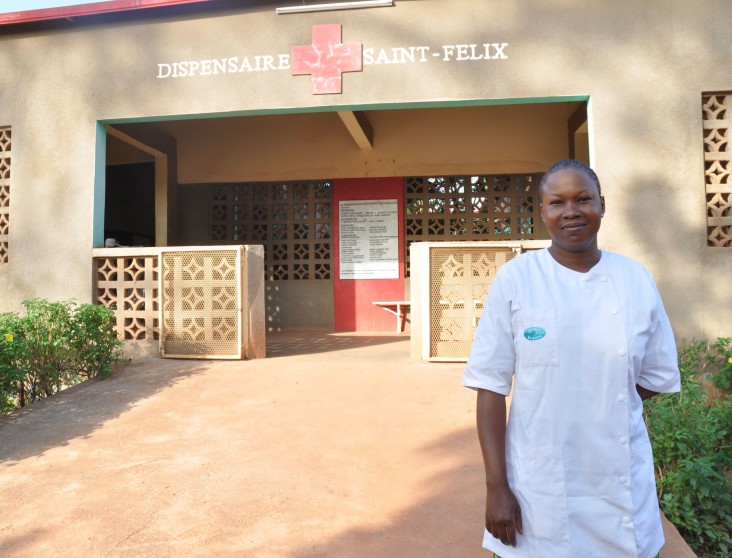
April 2014—Veronique Diawara, 26, lives in the small town of Kita, just three hours away from the capital city of Bamako in Mali. An obstetric nurse, she has been working at her local community health center for three years. Diawara attends many deliveries on a daily basis, sometimes facing complications that put the mother’s health and/or life at risk. One of the dangers she faces is postpartum hemorrhage, or the loss of more than 550 milliliters of blood after delivery.
Postpartum hemorrhage is one of the leading causes of maternal deaths worldwide, occurring in 10.5 percent of births and accounting for over 130,000 maternal deaths annually. Thanks to USAID’s assistance, Diawara and many like her have been trained to prevent postpartum hemorrhage with active management of the third stage of labor. The procedures allow the health worker to more effectively control or minimize blood loss at birth, thereby reducing the chance for postpartum hemorrhage and potentially saving the life of the mother.
“I was trained in active management of the third stage of labor two years ago [in 2011] and, since then, I’ve seen a real reduction of postpartum hemorrhage and retention of the placenta,” said Diawara.
She recounts one event when a woman in her community arrived in labor: “When the woman arrived, I examined her condition and made sure all of the steps of active management of third stage of labor were followed. After the delivery, the woman told me that last time she had a baby, she bled a lot and she was scared to deliver again. She was very happy because she did not have any problems this time.”
Approximately 99 percent of USAID-supported community health centers practice active management of the third stage of labor. By training health workers and nurses like Diawara, USAID ensures maternal health services are reaching more people in their communities. The training is part of USAID's National Technical Assistance Program in Mali, designed to expand and improve the delivery of high-quality maternal, newborn and child health services. The program ran from October 2008 to September 2013.
Under the program, USAID also trained health workers to provide treatment and services for malaria, diarrhea, respiratory disease and family planning. Diawara was trained in family planning services and the administration of long-acting methods of birth control. These methods, such as intrauterine devices, provide effective contraception for an extended period of time and enable healthy child birth timing and spacing of pregnancies.
Under the capable hands of health workers and nurses like Diawara, soon-to-be mothers can focus on what matters most: taking care of themselves and their babies.
Links
Follow @USAIDMali, on Facebook







Comment
Make a general inquiry or suggest an improvement.